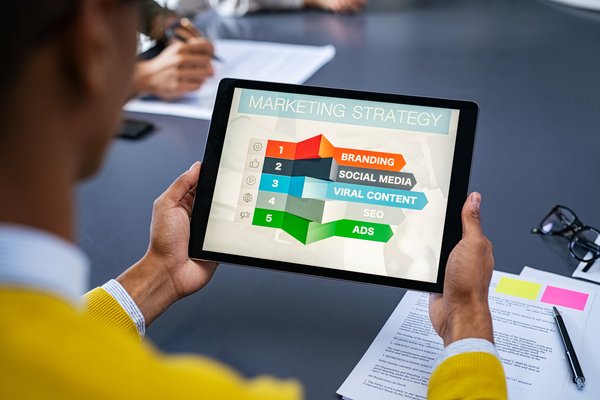Updated: April 5, 2024
Published: April 5, 2024
In today's fast-paced world, digital marketing has become essential for businesses of all sizes. But what exactly is digital marketing, and why is it so important? Let's break it down in simple terms.

Digital marketing is all about promoting products or services using digital channels such as websites, social media (Facebook, Instagram, YouTube etc), email, search engines (Google, Bing, Yahoo), and mobile apps. Unlike traditional marketing methods like TV ads or billboards, digital marketing allows businesses to reach their target audience directly and track the effectiveness of their campaigns in real-time.
With digital marketing, your business can extend its reach far beyond the confines of traditional marketing channels. Did you know that there are over 4.6 billion active internet users worldwide? That's a vast audience waiting to discover your brand online!
Compared to traditional marketing methods like print ads or TV commercials, digital marketing is often more cost-effective. For example, research has shown that digital marketing channels can generate three times as many leads as traditional advertising, but cost 62% less on average (Source: DemandMetric). Additionally, businesses that invest in content marketing efforts experience conversion rates that are nearly six times higher than those that don't (Source: Aberdeen Group).
Digital marketing allows you to target specific demographics, interests, and behaviors with pinpoint accuracy. For instance, platforms like Facebook Ads offer advanced targeting options that let you reach users based on factors such as age, location, interests, and online behavior. In fact, targeted ads are 58% more effective than traditional advertising methods (Source: McKinsey).
Unlike traditional marketing, where it's challenging to track the impact of your efforts, digital marketing provides detailed analytics and metrics. You can see exactly how many people viewed your ad, clicked on your website, or made a purchase, allowing you to optimize your campaigns for better results.
SEO involves optimizing your website to rank higher in search engine results pages (SERPs). By improving your site's visibility, you can attract more organic traffic and increase your chances of getting discovered by potential customers.
Fact: Over 40% of online revenue is captured by organic traffic (Source: BrightEdge).
SEM involves using paid advertising to appear in search engine results. This includes pay-per-click (PPC) ads, where you pay each time someone clicks on your ad. SEM can help you reach people actively searching for products or services like yours.
Fact: Businesses make an average of $2 in revenue for every $1 they spend on Google Ads (Source: Google Economic Impact Report).
SMM involves promoting your brand and content on social media platforms like Facebook, Instagram, Twitter, and LinkedIn. It's an excellent way to engage with your audience, build relationships, and drive traffic to your website.
Fact: 73% of marketers believe their efforts through social media marketing have been "somewhat effective" or "very effective" for their business (Source: Social Media Examiner).
In today's digital age, consumers spend a significant amount of time online, making digital marketing the most effective way to reach them. Whether they're searching for information, browsing social media, or shopping online, your target audience is just a few clicks away. By leveraging digital marketing strategies like Search Engine Optimization (SEO), Search Engine Marketing (SEM), and Social Media Marketing (SMM), businesses can increase their visibility, generate leads, and ultimately drive sales.
At WebMad, we specialize in digital marketing solutions tailored to your business needs. Whether you're looking to improve your search engine rankings, launch a targeted advertising campaign, or build a strong social media presence, we've got you covered. Our team of experts will work closely with you to develop a customized strategy that delivers results and helps you achieve your goals, both paid and organic.
In conclusion, digital marketing is no longer optional for businesses—it's a necessity. By embracing digital channels and leveraging the power of the internet, businesses can reach their target audience more effectively, drive engagement, and ultimately grow their bottom line. If you're ready to take your digital marketing efforts to the next level, contact WebMad today and let us help you succeed in the digital world.